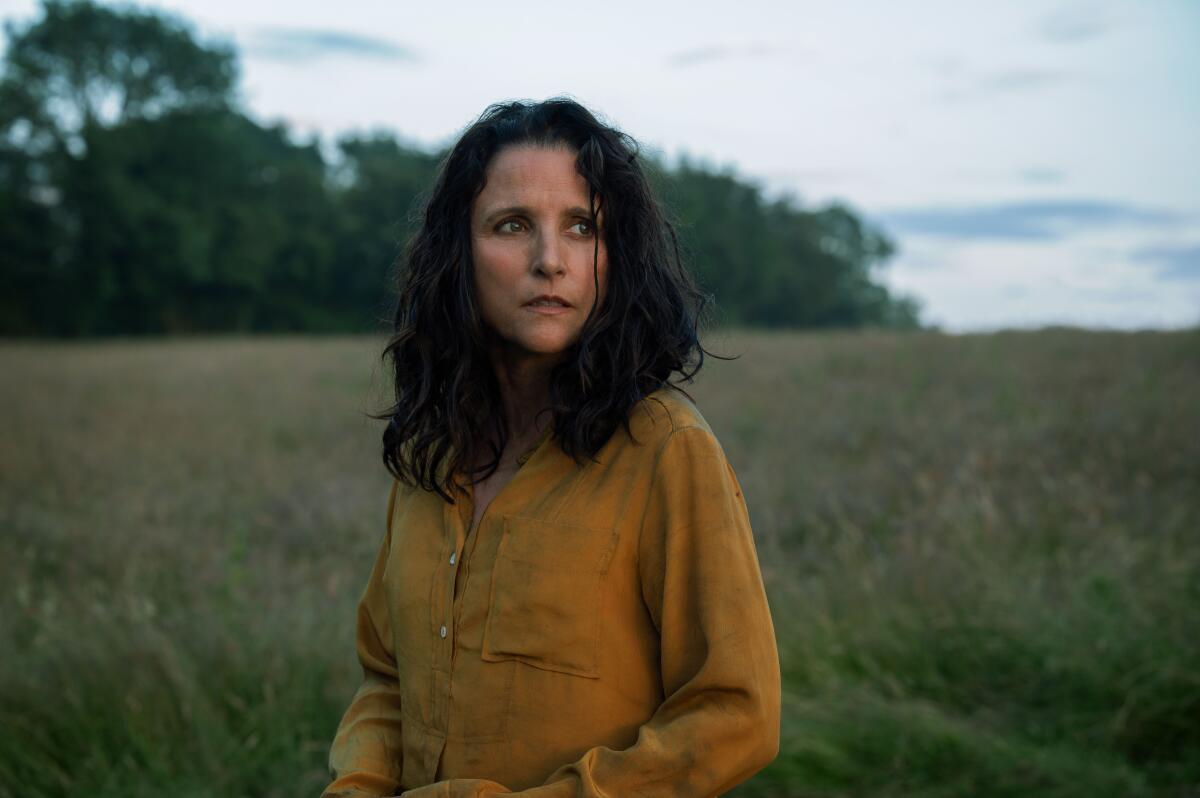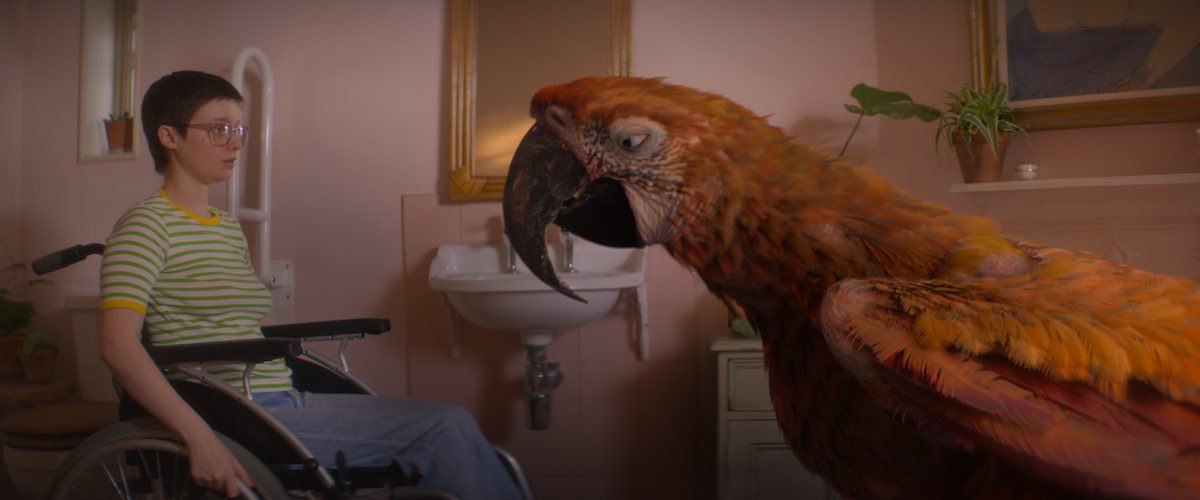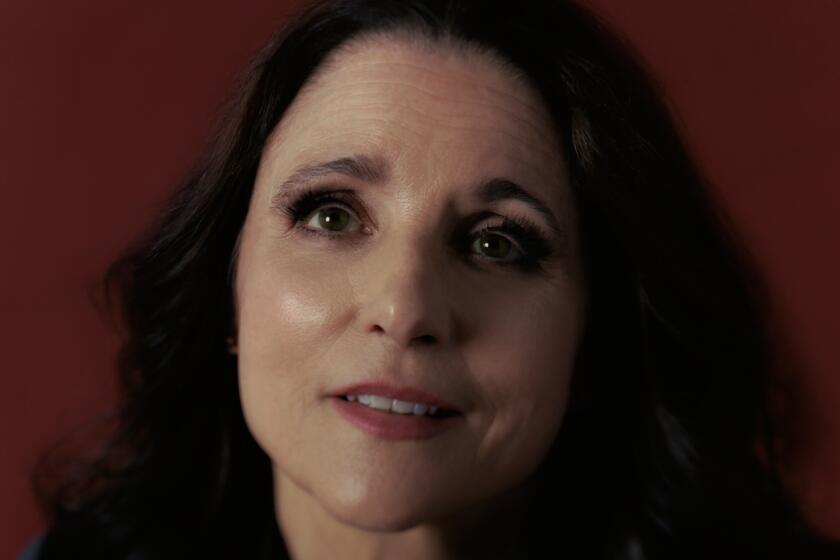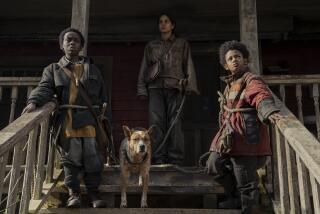Review: Even Julia Louis-Dreyfus can’t make ‘Tuesday’ not feel like a Monday

What comes after death is arguably the great unknown of humankind, making grief and the afterlife endless subjects for storytelling. How to visualize death, perhaps most famously realized in Ingmar Bergman’s “The Seventh Seal,” has likewise long haunted filmmakers. In “Tuesday,” the feature debut from U.K.-based Croatian writer-director Daina O. Pusić, death becomes a macaw.
Yes, a macaw. As the bird goes about his work, waving a wing over those whose time is up, it changes size, growing to larger than human scale or shrinking to hide in a young woman’s ear. Also it can communicate with people. There is something both unnerving and a bit silly about the idea — the creature is voiced and performed by actor Arinzé Kene, augmented by CGI — and the film places an unbalanced amount of attention on the bird. If it is meant to be the big innovation and motivating element of the rest of the film, it simply does not hold up.
In her new movie, “Tuesday,” and on her “Wiser Than Me” podcast, Julia Louis-Dreyfus goes deep on a subject we all must confront — how things end.
This means that the film’s human story, where its interests should more properly lie, winds up feeling shortchanged in the face of so much focus on the macabre macaw of death. Zora (Julia Louis-Dreyfus), an American woman living in London, is struggling to come to terms with the imminent death of her daughter, Tuesday (Lola Petticrew), who has a terminal illness.
Pusić isn’t much interested in the details of the backstory or how these characters ended up in these circumstances, which works both to the film’s benefit, keeping it very focused on the moment, and also to its harm, with too many distracting, dangling questions about the bigger picture. The movie feels like an adaptation of a short story that has been pushed to the edges of its literary map, struggling to expand beyond.

Much of what does work in the film revolves around the performance of Louis-Dreyfus. She has long been a master of a certain kind of aggrieved resignation, the feeling that the forces of the world are somehow conspiring to make her day worse. In her work with writer-director Nicole Holofcener in “Enough Said” and “You Hurt My Feelings,” she found a more dramatic register, albeit one still rooted in comedy. Here, the allegorical absurdity of the situation draws upon her comedic reserves, in contrast to the seriousness of a woman in denial about her daughter’s impending death. Louis-Dreyfus fluidly blends the conflicting emotions together.
With “Tuesday,” Pusić shows great promise as a visual storyteller and director of performers. Yet it is in her work as a screenwriter where the film falters. Without the power and nuance that Louis-Dreyfus brings to the role, the drama would not have nearly as much spine or impact as it does. There still isn’t much need to make a date with this “Tuesday,” more an oddity than a revelation.
'Tuesday'
Rating: R, for language
Running time: 1 hour, 51 minutes
Playing: In wide release Friday, June 14
More to Read
Only good movies
Get the Indie Focus newsletter, Mark Olsen's weekly guide to the world of cinema.
You may occasionally receive promotional content from the Los Angeles Times.












